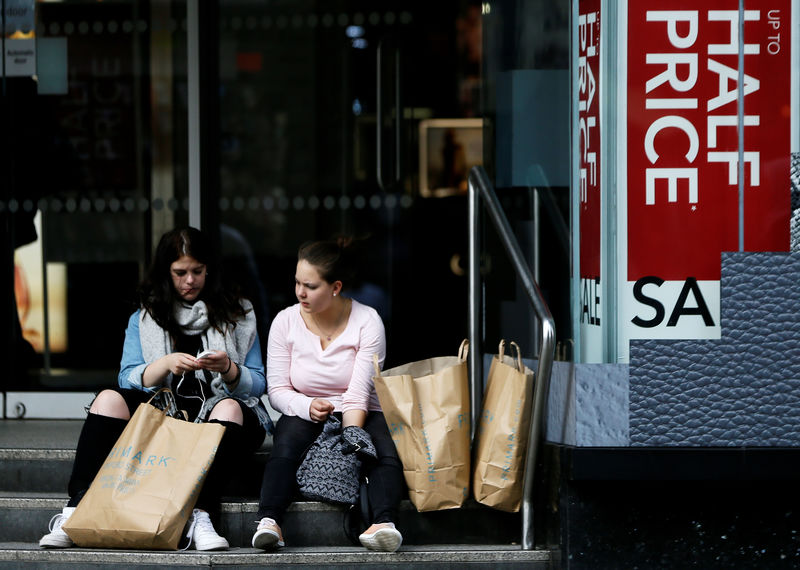LONDON (Reuters) - Major British retailers reported the weakest July sales growth since records began more than 20 years ago on Tuesday, and overall consumer spending was lackluster too, despite a boost from summer blockbusters "The Lion King" and "Toy Story 4".
The industry figures add to signs of slowing demand from households, the one sector of the economy which has held up relatively well since June 2016's vote to leave the European Union, helped by rising employment and wages.
The British Retail Consortium, which represents major high-street chains and supermarkets, said annual total sales growth picked up to 0.3% in July after contracting by 1.3% in June and 2.7% in May.
"While any growth is welcome after two months of decline, it's clear that most players need more than sunshine to get back on their feet," Paul Martin, UK head of retail at survey sponsor KPMG, said.
The BRC said July spending growth was the lowest for that month since 1995, and especially modest given record temperatures had followed a rainy June, which would normally spur extra purchases on summer clothes and barbecue food.
Last year, the men's soccer World Cup and generally good weather boosted spending, adding to tough year-on-year comparisons in recent months.
Barclaycard reported a similar trend in its monthly consumer spending data, which showed 1.7% growth, the fastest since April but still relatively subdued.
The one bright spot was spending on cinema tickets - up 15% on a year earlier - which Barclaycard attributed to the popularity of Disney films "The Lion King" and "Toy Story 4".
"Underlying uncertainty about the wider economic and political landscape (is) causing many to hold off making purchases on bigger-ticket items," Barclaycard director Esme Harwood said.
New British Prime Minister Boris Johnson said last month he was committed to taking Britain out of the European Union on Oct. 31, even if that meant leaving without a deal - something businesses fear would cause major disruption.
Barclaycard said the proportion of consumers who said they still felt comfortable making big purchases had dropped to 54% from 60% over the course of a month, while job loss fears had risen to the highest in more than two years.

New car sales suffered their biggest July fall since 2012, motor industry data showed on Monday, and Britain's biggest private-sector employer, supermarket chain Tesco (LON:TSCO), said it was cutting 4,500 jobs on top of several thousand earlier this year.